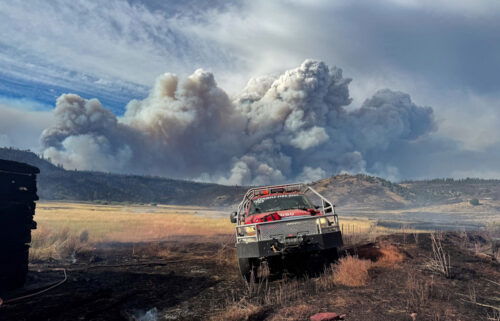OSU chosen to lead NOAA institute for marine research
NEWPORT, Ore. (KTVZ) – Oregon State University said Tuesday it has been selected to host a National Oceanic and Atmospheric Administration institute focused on collaborative study of the rapidly changing ocean and expanded demands on its use.
The Cooperative Institute for Marine Ecosystem and Resources Studies, or CIMERS, will focus on four research themes: conservation, protection and restoration of marine resources; marine ecosystems; ocean acoustics; and ocean, coastal and seafloor processes.
The institute will be eligible for up to $37 million in funding over the next five years, with potential for renewal for five more years.
“NOAA’s significant support of this collaborative marine institute underscores Oregon State University’s longstanding contributions in leadership, research and teaching to protect and enhance our oceans,” said OSU Interim President Becky Johnson. “We must accelerate that work due to the extraordinary pressures and changes taking place in our oceans and climate. OSU’s collaborative model of engaging many colleges, academic disciplines and external partners is well-suited to address these issues.”
NOAA supports 20 cooperative institutes in 28 states and the District of Columbia, providing funding to extend basic and applied research beyond the federal agency’s capacity. The institutes also serve as a training ground for future NOAA employees through undergraduate, graduate and post-doctoral education programs that align with NOAA’s mission.
The OSU institute was previously known as the Cooperative Institute for Marine Resources Studies and has been housed at Hatfield Marine Science Center since its establishment in 1982. In its new form, CIMERS will continue to address some of the same major marine research themes but also will expand to include new areas, said Francis Chan, the institute’s director.
“The new Cooperative Institute better reflects the breadth of the ocean science we need to sustain a productive ocean ecosystem in the face of climate change,” Chan said.
CIMRS supports marine research around the world, with an emphasis on the Northeastern Pacific Ocean.
One of the institute’s key roles is to conduct an every-two-weeks survey of ocean conditions and sampling of zooplankton, which are critical to the marine food chain. The survey begins near the shore in Newport, Oregon, and extends about 25 nautical miles off the coast, crossing waters that are home to salmon, rockfish and whales that are icons of the Pacific Northwest’s coastal ocean.
“Our ocean is changing rapidly,” Chan said. “This survey gives us an important indicator of the health of the ocean ecosystem and provides resource managers with information that is crucial for safeguarding the resilience of fisheries and coastal economies.”
Institute researchers also have played key roles in important ocean discoveries, such as underwater volcanoes, methane seeps and hydrothermal vents found on the seafloor. They have also led important studies on ocean acoustics and the impacts of an increasingly noisy ocean on sea life.
“The collaborative nature of this institute offers opportunities for researchers in a wide range of disciplines, from engineering to agricultural and biological sciences, to engage in and participate in projects,” said Irem Tumer, vice president for research at Oregon State. “This is an opportunity to help NOAA tap into all of the experience Oregon State researchers have to offer, including climate solutions, the blue economy, new discoveries and more.”
The new institute also will have a sharper focus on diversity, equity and inclusion efforts in marine science. The institute serves as a training pipeline for future NOAA scientists, and one of the institute’s goals is to ensure that people from underserved groups have opportunities to engage in marine research, Chan said.
“We have too many challenges and opportunities ahead in ocean science to be leaving people behind,” he said. “We need to engage the talents, creativity and experiences of all students who can be future leaders in finding new solutions and discoveries.”
Oregon State was selected to host CIMERS following an open, competitive evaluation. The university is also a partner in NOAA’s Cooperative Institute for Climate, Ocean and Ecosystem Studies, or CICOES.



